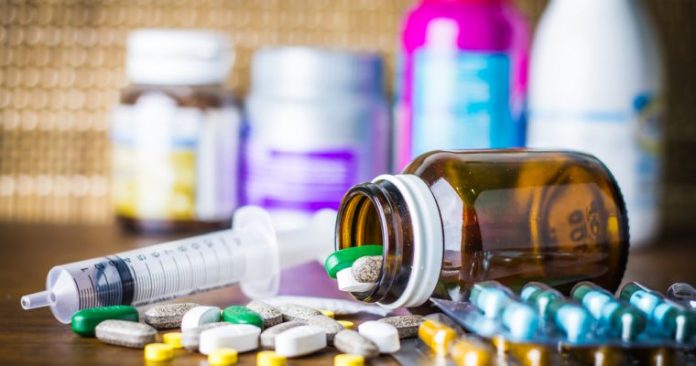Critical medicine has fallen short in the market due to pricing disputes between the pharmaceutical industry and the Health Ministry, leading patients to resort to smuggled and potentially counterfeit drugs at exorbitant costs.
A Background
Previously, the COVID-19 pandemic caused an exponential increase in the prices of pharmaceutical ingredients including the raw materials used in drug manufacturing in the international markets. This conflated with skyrocketing inflation and rupee devaluation.
Consequently, the Consumer Price Index (CPI) rose by 27.6% in January 2023 as compared to its amount in the same period in 2022. In recent months, the rupee hit an all-time low at 286 rupees against $1, which made it one of Asia’s weakest currencies.
According to sources, “80% of the raw material for the manufacturing of pharmaceuticals is imported. The persistent exchange rate fluctuations has created a situation wherein the pharmaceutical companies can’t sustain their operations in Pakistan. This is compounded with the imposition of duties and tariffs on imported raw material.”
“Inflationary Adjustments” in Medical Prices
Earlier in February, 70 pharmaceutical companies wrote a letter urging the government to increase the prices of medicines in Pakistan due to the rising inflation and significant rupee depreciation in the country. The letters were addressed to the federal minister and secretary of Ministry of Health Services, Regulation and Coordination and CEO of Drug Regulatory Authority of Pakistan (DRAP). According to the letter, the medicinal companies called the government to adjust the maximum retail prices of medicines according to inflation. They also indicated that failure to make such adjustments could lead to the collapse of the domestic pharmaceutical industry in Pakistan.
The Chairman of the Pakistan Pharmaceutical Manufacturers Association defended the demand for an “inflationary price adjustment,” as he perceived this as necessary given the increasing inflation and dollar-rupee disparity.
“The (local) pharmaceutical industry is on the verge of collapse because of no corresponding adjustment in pricing despite a 60pc increase in the materials’ cost in recent years, “ he added.
“When we demanded a 38pc raise, a dollar was Rs235. And now it’s Rs286, which means even this 38pc increase will not be enough,” said Bukhari. “However, we are still open to any government offer in this regard.”
If the government does not bow to the manufacturers’ “logical” demand, he warned, pharmaceutical companies would be compelled to shut down their units, risking more than 1 million jobs.
“We have only one month (left) to make a decision as currently, we are using the raw material, which we have in the pipeline to produce medicines, “he said.
According to Bukhari, a total of 1300 local brands communicated to the government that it was impossible for them to continue their business at the existing cost mechanism.
“There is a 200pc increase in the prices of flour, oil, vegetables, and other essential items. But the government is not ready to accept our legitimate demand just to gain political mileage,” he exclaimed.
Based on the amalgamation of these factors, the pharmaceutical industry now demands a 38% increase. However, the government has rejected the demand. As a result, pharmaceutical companies are either halting their manufacturing or turning to limited-scale production of scores of essential and non-essential medicines.
What Should the Government Do?
Sajid Shah, the Health Ministry spokesperson said that the government is fully cognisant of the situation and will make decisions keeping in mind the interests of the masses and the pharmaceutical industry.
He told Anadolu, “The ministry and the regulatory authorities understand the problems the pharmaceutical industry is facing due to the current economic situation, especially the dollar’s appreciation. But, simultaneously, we have to protest the interests of 220 million [people] as well.”
The Pakistan Medical Association (PMA), a nationwide body of health professionals, is against the idea of inflating prices. However, it acknowledged the problems that the pharmaceutical industry faces.
“Some of their points are valid and we fully acknowledge them. But the PMA is a patient-friendly body, and it cannot support an increase in the prices of the drugs, considering the ongoing economic conditions of the masses,” PMA President Dr Usman Mako, told Anadolu.
“We suggest that instead of increasing prices, the government and the pharmaceutical industry together share the burden of inflation and rupee devaluation,” he said.
A Potential ‘National Health Emergency’
As the government fails to make inflationary adjustments in medicine prices, importers have stopped or drastically reduced the imports of about 100 crucial medicines related to general anesthesia, plasma-derived products, vaccines, oncology products, and biological products, causing a dearth of medicines across the country.
Abdul Samad, an office-bearer of the Pakistan Chemist and Drugs Association informed Anadolu, “Most of the importers are nowadays importing a minimum quantity of dozens of essential and non-essential medicines just to keep their licenses intact. Otherwise, it’s no longer a profitable business for them due to a huge devaluation of the rupee against the dollar.”
Additionally, Samad also cited the coronavirus pandemic and the Russia-Ukraine war as imminent reasons behind rising prices for products on the international market, primarily because of, and an unprecedented rise in global inflation.
In fact, Eli Lilly, the manufacturer of Humalog medical insulin used to treat diabetes has already closed its operations in Pakistan, as the pharmaceutical industry struggles to survive amidst the increasing product costs. The exodus of multinational pharmaceutical companies has accelerated in recent years. In July 2022, Sanofi Aventis Pakistan limited also exited, selling its plants to local companies.
The consequential unavailability of medicines can inevitably trigger a national health emergency. Health professionals already preempted the potential scarcity of medicine, which is exactly where we find ourselves today.
Due to the absence of medicines in the market, patients are already relying on smuggled drugs. Potential counterfeit drugs have also become widely available in stores.





27.6% is an impressive number.